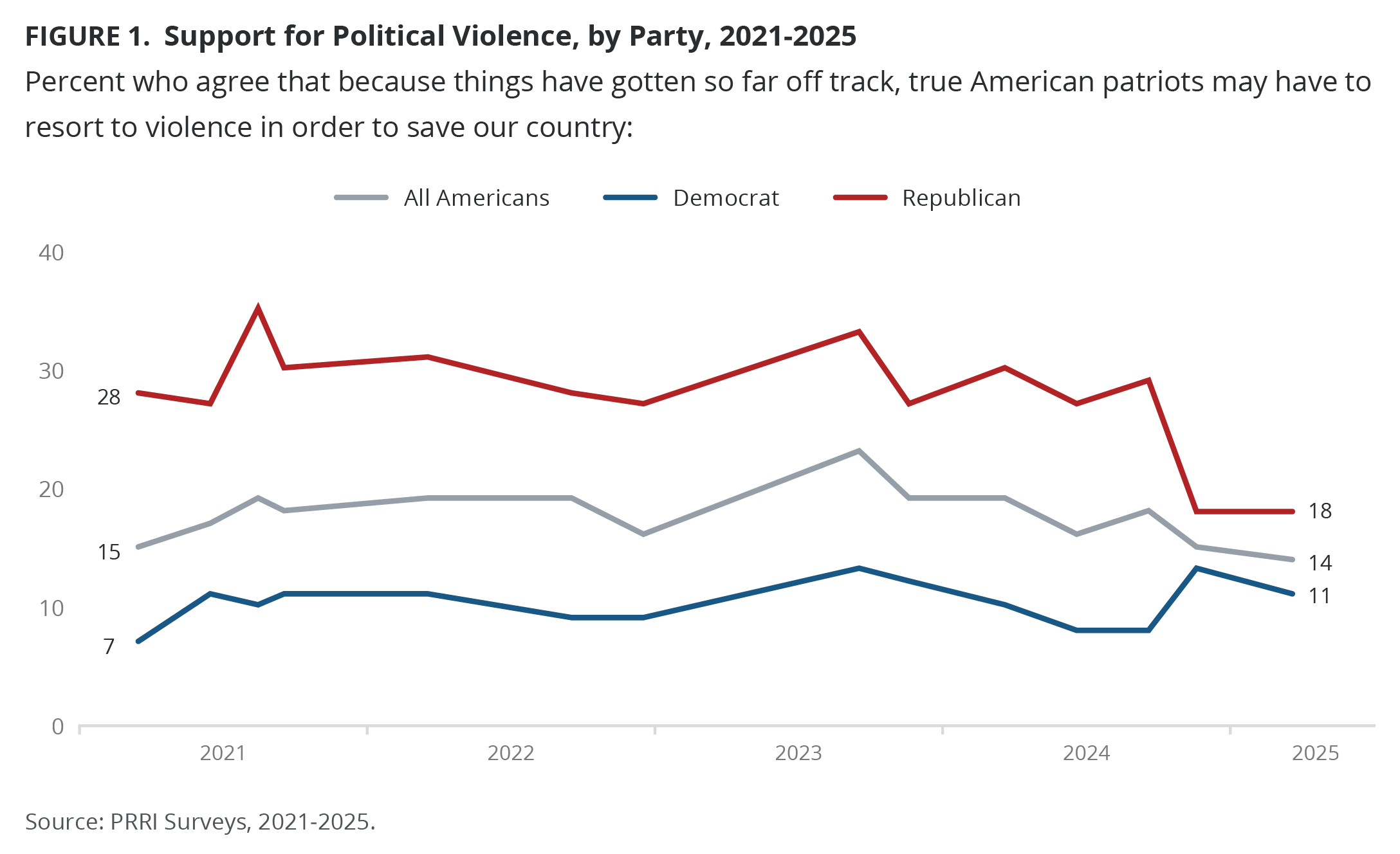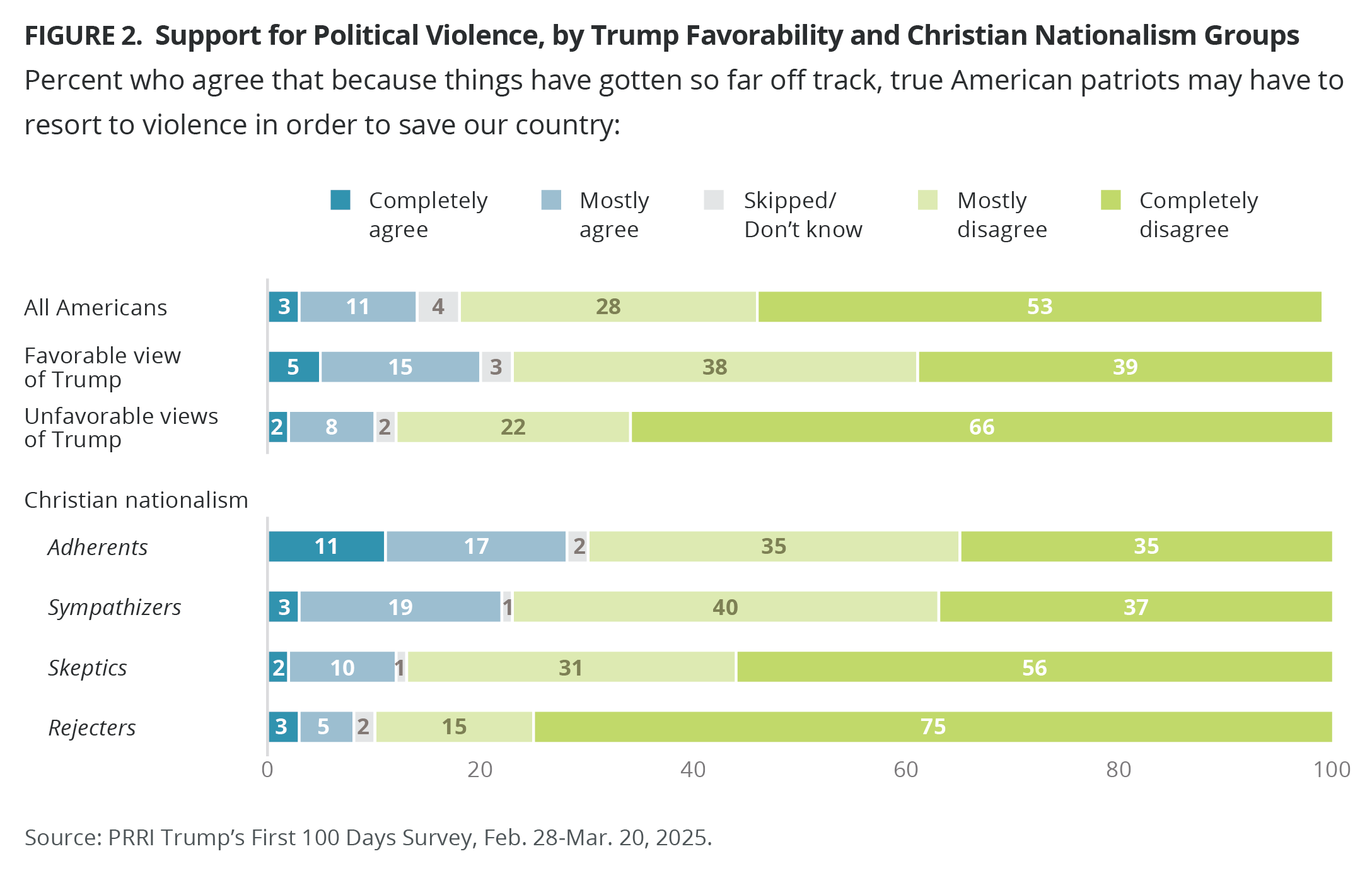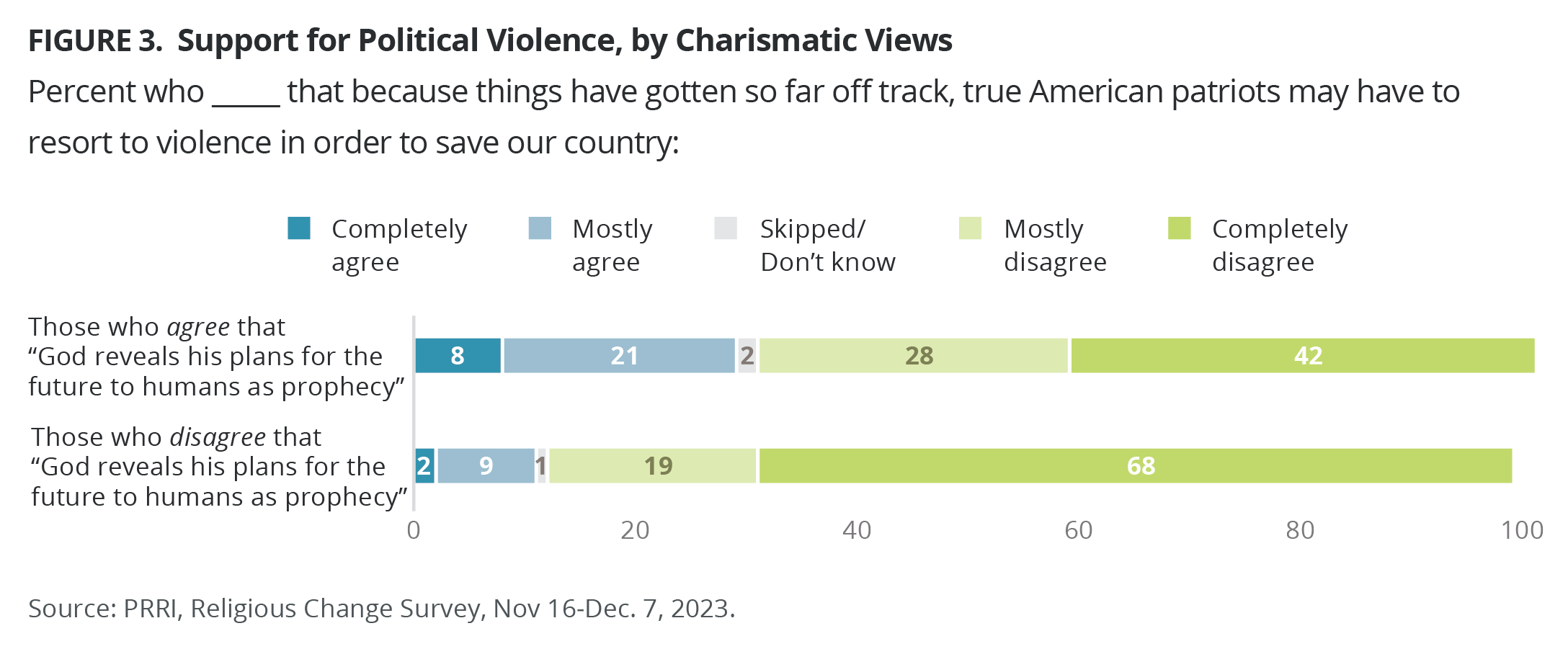On Saturday, June 14, 2025, Representative Melissa Hortman and her husband were fatally shot in their home, following the earlier shooting and wounding of Minnesota state Senator John Hoffman and his wife at their residence. According to those who knew the attacker, he held strong religious convictions and conservative political views and had connections to Christ for the Nations Institute, a charismatic “Spirit-filled” Bible school. These attacks have increased fears over the growing threat of political violence in the United States. This Spotlight Analysis examines the relationship between Christian nationalism, charismatic views, and support for political violence.
The PRRI Trump’s First 100 Days Survey finds that most Americans (81%) disagree that “because things have gotten so far off track, true American patriots may have to resort to violence in order to save our country,” including 53% who completely disagree, compared with 14% of those who agree. Except for September 2023, when support for political violence peaked at 23%, these percentages have remained relatively stable since PRRI first asked the question in March 2021.

In our latest survey, Republicans (18%) are more likely to agree that political violence may be necessary to save our country than independents (13%) and Democrats (11%). Independents’ views on this measure have been consistent since March 2021. Support for political violence among Republicans peaked at a high of 35% in August 2021, though most recently, since Trump’s election, their support has been at its lowest (18%). Democrats’ support for political violence has remained consistently lower during this period, ranging from a low of 7% to a high of 13%.
Our most recent survey also finds that Americans who hold favorable views of Trump are twice as likely to favor political violence as those who hold unfavorable views of him (20% vs. 10%). Moreover, support for Christian nationalism is associated with increased support for political violence. Nearly three in ten Americans who qualify as Christian nationalism Adherents (28%) agree that true American patriots may have to resort to violence to save the country, followed closely by 22% of Sympathizers. Christian nationalism Skeptics (12%) and Rejecters (8%) are less likely to support political violence.

From the moment Trump entered politics, charismatic Christian leaders (who are typically viewed by many evangelical followers as modern-day messengers of God) have portrayed him as a fulfillment of biblical prophecy, a perspective that may help encourage a sense of divine urgency and justification for political action, including violence. When examining the role of charismatic beliefs on support for political violence, PRRI’s Religious Change Survey finds that 45% of Americans completely or mostly agree with the statement that “God reveals his plans for the future to humans as prophecy,” compared with 51% of those who completely or mostly disagree. While most Americans who embrace biblical prophecy views do not endorse political violence, those who do are about three times as likely as those who do not to support potential political violence in order to save the country (29% vs. 11%).

As political tensions continue to rise in this country, exemplified by the tragic event in Minnesota, it is increasingly important to understand the wider threat of political violence and how religion may play a role in it.





